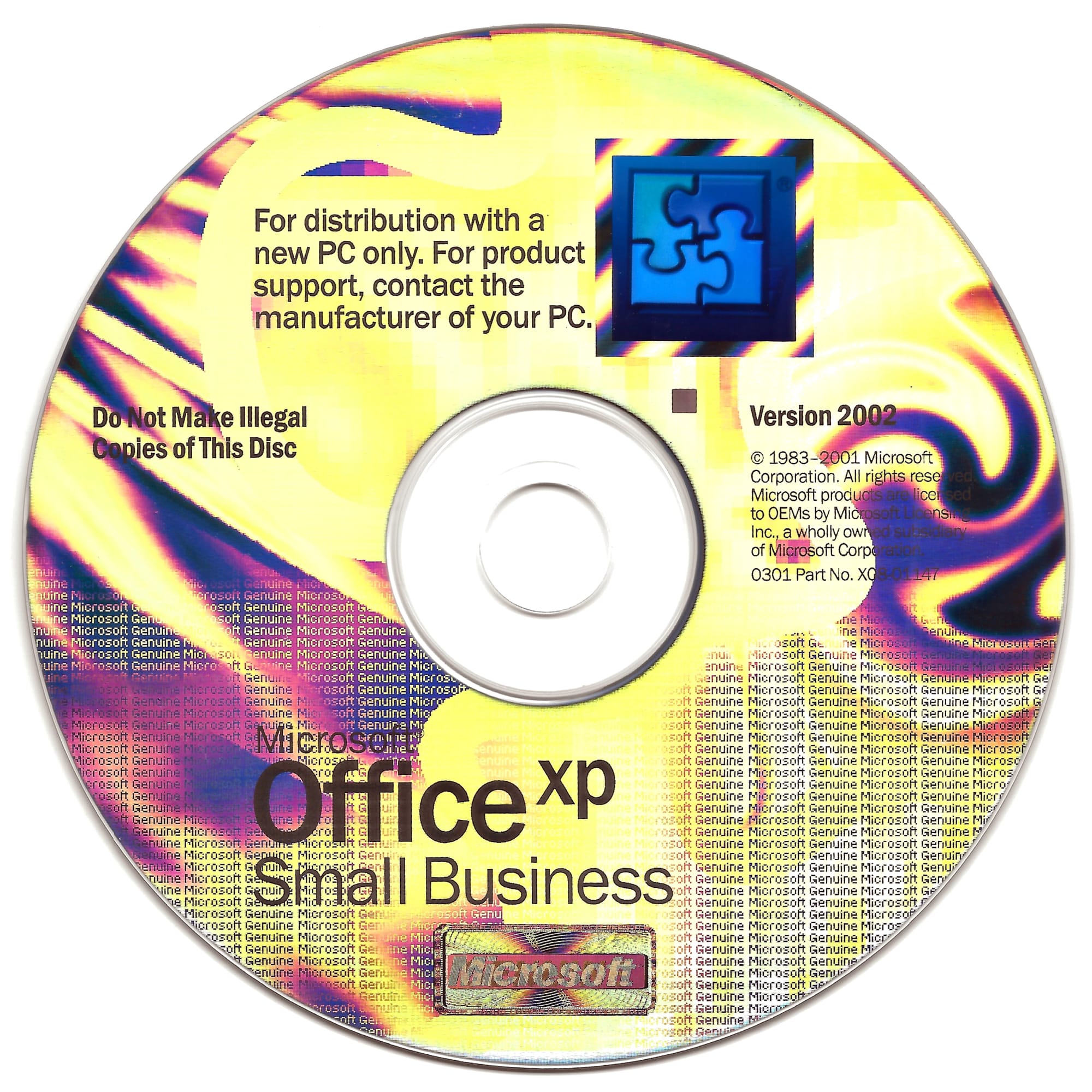When I was 17, I went to the computer store to buy a new PC. I had already been making some money freelancing as a copywriter, and I needed a better computer. So I walked into this store, and before we got to the PCs, I saw something that was an absolute must-have in those days:
A boxed copy of Microsoft Outlook.
See, way back 20+ years ago in the dawning of the age of the millennial, back when MuchMusic still had VJs and we mocked hipsters for flannel, beards, and skinny jeans, only to later have that become our uniform...
You had to buy that shit.

Only once, too. But you had to buy it. For hundreds of dollars, sometimes. You'd get the physical box, take it home, put the disc in your PC, install it, and then you'd own the software. They'd provide updates for a while, but then release a new version and you'd have to buy it again.
This was the way all media was done up until this point.
Books got purchased, as did the later books in the series, and their reprints.
Movies got purchased, as did their sequels.
Music got purchased, and so did the next album.
And so software got purchased. And so did the next version.
Until one day, someone came up with this novel idea. What if we sold software, but we hosted it as a service?
People would have the benefit of constant forever updates and no worries about their own computers being capable of things or having to buy the next version, and the software company would get fairly consistent recurring revenue from that point forward giving them stability.
And so began the fastest concentration of wealth the world has ever seen.
But websites? Oh, websites were still things you could own.
You'd go and get a hosting company, you'd either use an HTML editor or a "WYSIWYG" editor like Dreamweaver or Frontpage, and you'd build a website and put it up on your host. You had to keep paying for the space, but you had complete control over your site and could move it wherever you wanted.
Of course, this came with the downside of making sure your host was compatible, fixing bugs yourself, having to update the software yourself...
You see where this is going?
Soon, WordPress came onto the scene. I got to meet the woman who helped name it, actually. She's cool. But WordPress itself was open source - certainly not making a ton of money for their founders.
So they started to offer "managed hosting" of WordPress, on WordPress.com, in 2005 - two years after their open-source project came on the scene.
Now, anyone - no technical skills required, just computer skills - could sign up on WordPress.com and build a website of their very own without worrying about any of that other stuff.
For the generation that made Geocities and Angelfire massive platforms, this was a golden age of creation for the web.
People paid a small amount of money each month, WordPress was financially sustainable, and their customers handed over the worries to their new tech bestie. All was right with the world.
Over the next 20 years, everything changed.
Wix, Squarespace, and dozens of others entered the fray. Companies like Kajabi, Thinkific, GoHighLevel, Shopify, Carrd, Teachable, Podia, Skool, Stripe, Discourse, Substack, Clickfunnels, and more - all jumped on board and offered incredible convenience.
Just sign up for an account, pay your monthly fee, and anyone with basic computer skills can make a website and send people to it!
Except now, every single one of those services I mentioned is hosted on Amazon Web Services (AWS).
You can't migrate your website from these services, because you don't own the software - only the thing you built with it, which requires the software to run.
They all use AWS, which means they take a portion of your money and hand it over to King Bezos, in all his GQ Cowboy Insecure Alpha Male glory, so he can use it to build another $42 million clock in a mountain for when humanity fails.

This ALSO means that no matter where you are in the world, no matter where your clients or customers are in the world, no matter where your company headquarters is in the world, your website data is on the web servers of an American company and therefore subject to the Patriot Act.
This allows the US Government to seize it at any time, without warrant or notice.
Like so many other things in life, we saw the convenience and the ease and we jumped on board without even being told the true cost.
We did not get, as they say in medicine, an opportunity for "informed consent." We did not get to be informed at all.
It actually took a lot more digging than it should have to confirm that these companies use AWS.
Substack in particular made this difficult to confirm, but I was able to. I actually captured it on video.
You can, too, if it's something you want to do. To understand if a service uses AWS to host, you can of course Google it but you can ALSO do this:
All of this came to a head this week, when someone DM'd me a question.
I had recommended Discourse to another Solo School student as an Open Source project they could use to run a community, in the context of data privacy and data sovereignty in Canada, and this student was confused.
She asked what I meant, because Discourse offered hosting for $20/month, but it wasn't in Canada.
When I say that her question shook me to my core and changed my identity as a person, I mean it.
Up until that moment, I had assumed that people knew what these terms meant. What "Open Source" was. How hosting worked. How these services sometimes offer hosting using infrastructure like AWS or Azure, but there are other options.
I had assumed that my knowledge wasn't special or unique, that it was commonplace and that everyone had it.
I share this anecdote with her permission, and she doesn't know it yet, but this is also my chance to thank her. Because she was so very brave.
By being brave enough to ask for that clarity, to admit that she didn't know or didn't understand, she shook me from my own ignorance and arrogance and made me realize that I have a role to play in this technology revolution.
I am a knowledge keeper.
See, alongside business, tech has been the special interest of my life. I've taken the Intro to Computer Science course offered free online by Harvard - the same one offered in person to their students. I've custom-built PCs. I've fixed many, many problems for friends and family. I've coded websites by hand. I learned HTML from a FrontPage college-level textbook when I was barely a teenager. I got my feet wet on the internet in Yahoo's Web Design 1 Chatroom back in 2002.
I know more than enough to be dangerous, and now I know exactly who I am supposed to be dangerous to.
So, let's spell out the absolute basics here for your benefit:
- Open Source is a type of software license. There are different kinds of "Open Source" but at its core, the source code is out in the open. Hence, Open Source. This also usually means a large community of very smart people who contribute to making the software better. For free. As volunteers. Think of it kind of like Wikipedia-ing software.
- This means that usually, Open Source software can be downloaded from its creators, and uploaded somewhere else to run it without having to pay the creators at all. This is why most Open Source projects are run by non-profit organizations. They have done more for tech than Silicon Valley ever will.
- Web hosts are different from WaaS companies. When you buy "web hosting", you're just buying space on a special computer connected to the internet called a "server". It allows you to put just about anything you want in that space. Whatever you put in that space, you own and can take with you when you leave. You have more control.
This means that if you are using a WaaS provider like those above, you're not having to learn a few fairly basic tech skills... But you're also losing:
- Control and ownership over the software that runs your website
- Control over your data, where your data lives, and who can access it
- The ability to easily take your data with you if you want to leave
- The ability to add features or functions to your site that your current provider doesn't offer, without paying yet another provider, and probably another provider like Zapier in between to make them work together
The alternative to these WaaS is not hand coding your own websites.
Not for most people. That's far too technical for what most people need, and would require distracting knowledge to implement.
The simple alternative to this is to:
- Find a web hosting service you like. One that uses a geography that benefits you and your ideal clients. I use Canadian Web Hosting. I can drive out to their headquarters. I can see pictures of the servers my sites are on. These things exist in very real ways.
- Find an Open Source project or a one-time-purchase software you can install on that web host. Examples include Ghost and WordPress.org, among others.
- Install that software on your web host using the instructions provided by those projects, which often include step-by-step, copy-and-paste written documents and video tutorials, not to mention courses and YouTube tutorials available that are created by their respective communities.
From that point forward, it's exactly the same as paying someone like Substack or Squarespace. You log in to your website and manage the website, you add content, you fix things and change things, and more.
It's exactly like paying these WaaS companies, but with more control, more features, more freedom, and lower costs.
Over the next few months, since this is a current hyperfocus for me, I have two goals here on this site:
- To teach you why you should do these things if you want to run an ethical, aligned business that operates in integrity
- To teach you how you can do these things, even if you have minimal tech skills
But for now, in this moment, your call to action is simple:
As time goes on, I'll be creating more resources to help you make these shifts and understand why they're needed. For now, just look at and understand where we've ended up. Because we can change it.
I can't figure out how to remove the Twitter share below just yet, so instead I'll just say, Elon Musk can get fucked. Thanks for understanding!



